Matilde Røndbjerg is 23 and a researcher
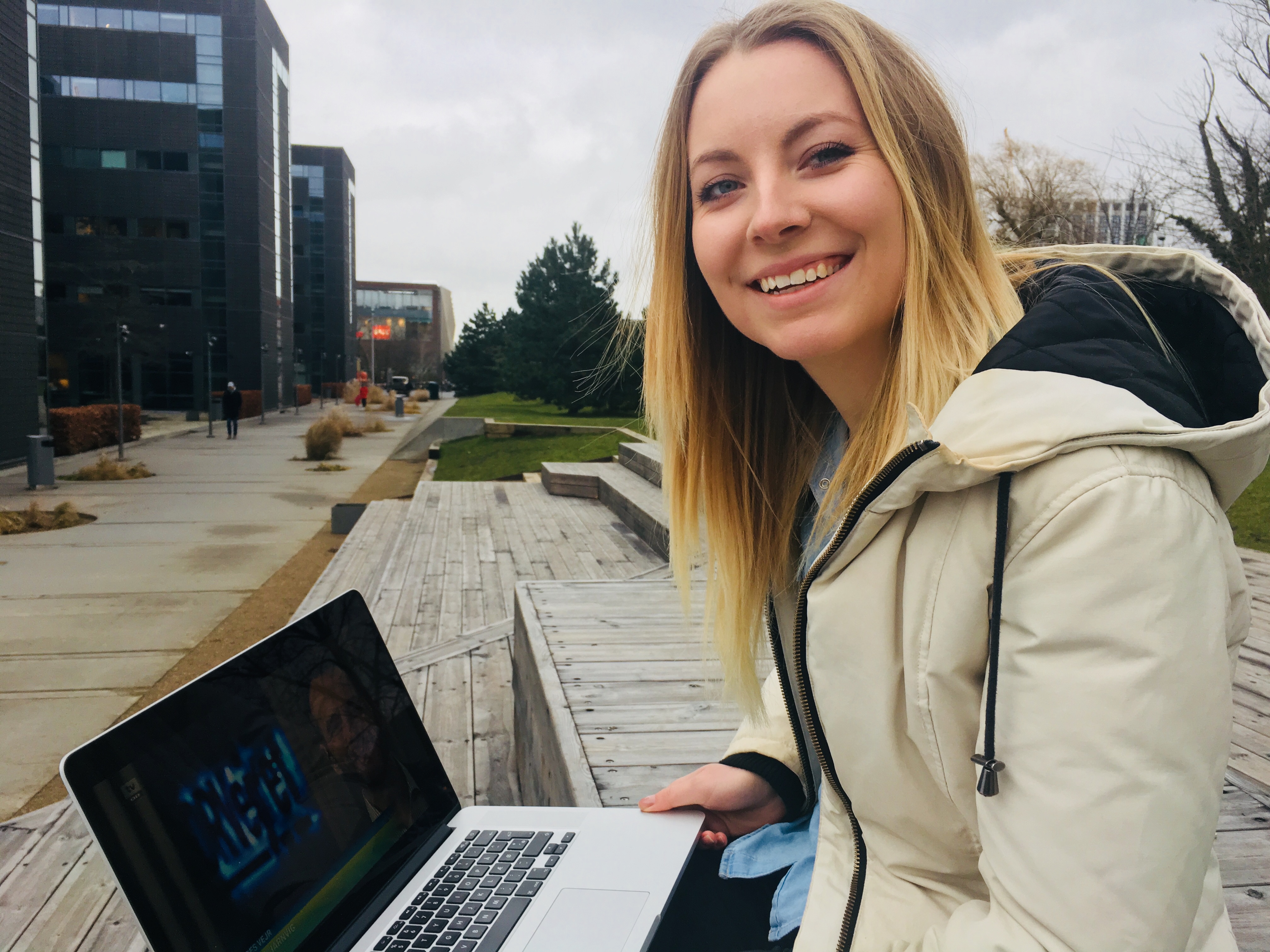
For an exam project during her bachelor, Matilde Røndbjerg invented a model showing some new results, which describes the connection between hours spent glaring at the TV and the type of weather. Her model later became a research paper, which she recently has presented at Oxford University and at the University of Copenhagen. CBS Professor, Ravi Vatrapu, says that student-made research is a win-win situation.
If you feel like most of 2017 has been spent indoors, maybe watching a lot of TV, you should not feel guilty.
According to the Danish Meteorological Institute (DMI), 2017 was the 10th wettest year in Denmark, and rain means binge watching TV. At least if you ask CBS master student Matilde Røndbjerg.
She has invented a model in which she uses data from 30 different weather types and cross-checks it with hours spent in front of the TV. And it has given some results never seen before.
“It may seem obvious that we watch more TV on rainy days, but it has actually been quite difficult to model the weather and TV data. But I made a model which can do exactly that,” she says and continues:
“My model shows that the more days it rains during a week, the more we watch TV. And the same goes for snowing.”
Even though Matilde Røndbjerg is only 23 years old and is studying a master in Finance and Investment at CBS and she has already made her first research paper based on her TV-weather model.
“Maybe it’s a little difficult for others to understand that I have done research, but I just think it’s super great that students and researchers can use my research paper and cite it,” she says.
First model in seven years
Matilde Røndbjerg did an elective in big data analytics on the 5th semester of her bachelor, HA Almen, and during that course she did an exam project analyzing our TV watching behavior based on the weather.
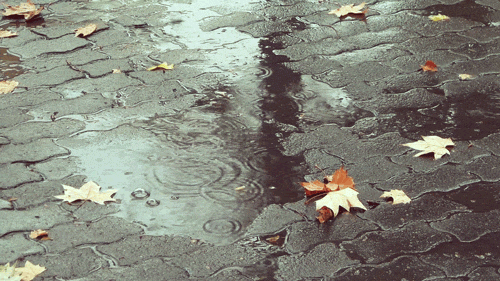
According to Niels Buus Lassen, PhD Fellow at the Department of Digitalization and the one who taught Matilde Røndbjerg’s elective, weather data and TV viewing-data hasn’t been modelled since 2010. And in the past seven years there has been a lot of disruption in the TV market, as new players such as Netflix, HBO, and Amazon Prime have taken over traditional TV.
“Matilde’s model is quite potent, especially since it can be rebuilt to model Netflix and some of the other new players that have taken over the classical TV. Furthermore, Matilde’s model was just evident for the Climate Econometrics conference in Oxford back in September last year, as she could show some new results, never seen before,” says Niels Buus Lassen.
When Niels Buus Lassen from the Department of Digitalization, read through Matilde Røndbjerg’s exam project, he sent it to Ravi Vatrapu, a professor from the same department. They both agreed that this project had the potential to become a research paper. And this is something very unique.
“I think on a national base, it’s quite unique what we do. It’s a win-win situation for everyone. Students get to know the research environment, and by publishing a paper, we also advance our research agenda at CBS,” says Ravi Vatrapu, Director of the Centre of Business Data Analytics at the Department of Digitalization at CBS.
Research gone right
“When I handed in the project, I was just really happy, as it had been a lot of fun doing this. I then got a really good grade for the project. But the day after receiving the grade, Niels Buus Lassen contacted me on email, and I was like: ‘Oh no, did they make a mistake?’ But he just wanted to see if we could make a research paper out of it, and of course I wanted to do that,” says Matilde Røndbjerg.
Matilde Røndbjerg, Niels Buus Lassen, and Ravi Vatrapu started to work on the project in order to make it fit for a research paper. During the process, she was introduced to Mads Krarup, who recently presented a research paper on the prediction of Airbnb sales with artificial intelligence.
When Mads Krarup was in his bachelor, he too was asked whether he wanted to move forward with his exam project on predicting Airbnb sales with Google searches.
It is not unlikely that I could consider doing a PhD
Matilde Røndbjerg
The two of them prepared a presentation on weather data and consumer behavior at a conference at the University of Oxford in September 2017, and that was quite something, explains Matilde Røndbjerg.
“I think it was just awesome that two students had the opportunity to be part of this and present something new. However, it was also quite scary to present to all these people, who maybe have been working with this since before I was born,” she says and explains that she presented her project at the Symposium for Applied Statistics at University of Copenhagen on the 23nd of January this year.
CBS should practice more student research
Ravi Vatrapu explains that the elective Matilde Røndbjerg did during her bachelor has been taught since 2012. And the fact that the elective is open to almost any student results in a wide variety of projects, which can eventually turn into research papers. Furthermore, the course is structured in a research oriented way.
“We tell the students from the very beginning that this is a research intense course. However, the students don’t have to show a positive result in order to get a 12. We want them to work with the scientific process and method thoroughly. If you then find something interesting, we can consider making a research paper out of it,” says Ravi Vatrapu.
We need to engage students in research at an early stage, as it gives them life-long skills.
Ravi Vatrapu
For instance, Matilde Røndbjerg explains that she chose to look into weather and TV data, as these are things that she is interested in.
“The good thing about the course was that we could choose any subjects to work with. So, I chose weather data and TV data. The weather is a very important part of the media landscape, and Danes are very interested in the weather, so I thought it was natural to combine it with TV data, as I also love to watch TV,” she says.
Giving the students an opportunity to turn their exam projects into research is, according to Ravi Vatrapu, something that should be practiced more at CBS and in Denmark in general.
“We conduct research at this university, but there is a larger mission. We need to engage students in research at an early state, as it gives them life-long skills. They get familiar with the scientific method and process, and it is important that we not only tell the students about these kind of things, but let them try it themselves,” says Ravi Vatrapu.

He explains that in the U.S. it’s possible for undergraduates and graduates to engage in the research environment as research assistants. We do not have that sort of arrangement in Denmark.
“The quality of the research that the students make is very high. We have won awards for best research papers at international conferences, and the research is good enough to be published in scientific journals, so I think CBS should practice more of this,” he says.
Not the last research paper from Matilde
For Matilde Røndbjerg, it has meant a lot to have an opportunity to engage with the research community. Working so much on her project has made her realize that this is what she wants to work with in the future.
“I have always been good with math, but I wasn’t quite sure what I wanted to do with it. Doing this course and spending so much time working on my project has, however, opened my eyes to what you can do with statistics and data. At first, it can seem like a mess, but working with the data, you can actually get a lot of valuable knowledge out of it,” she says.
But after spending time with the nerdy people from the Department of Digitalization, does she want to become a researcher herself?
“If you asked me a couple of years ago, I would have answered that I just wanted to finish my degree and get a job. Research didn’t strike me as something fun. Now, I think the opposite, and it is not unlikely that I could consider doing a PhD,” she says.
So, this is not your last research paper?
“Hopefully not,” she says.



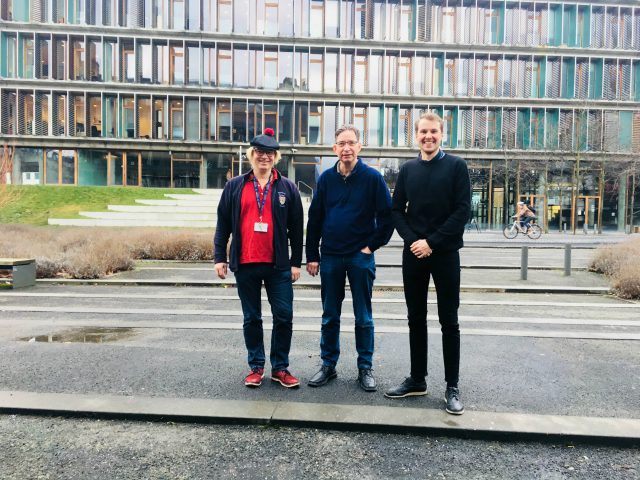
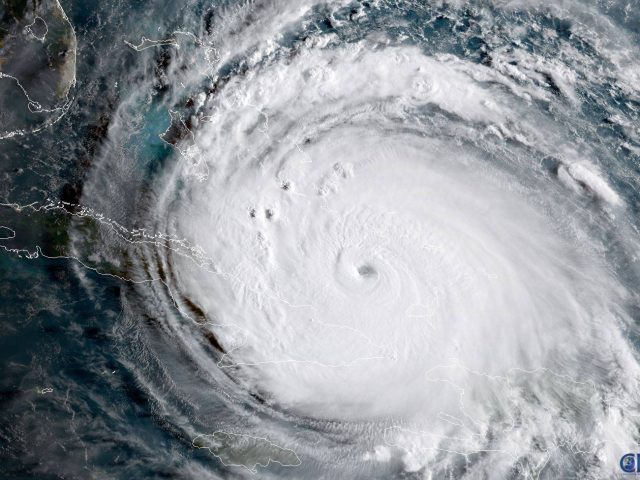
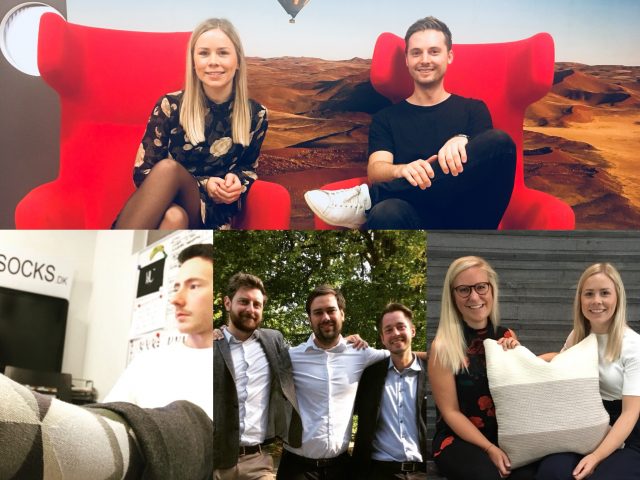
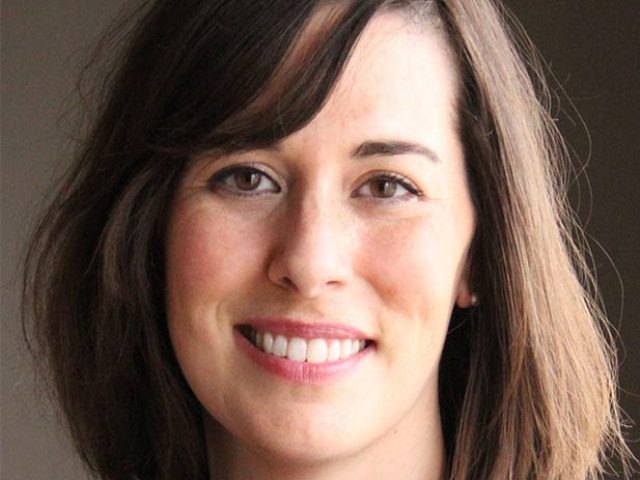
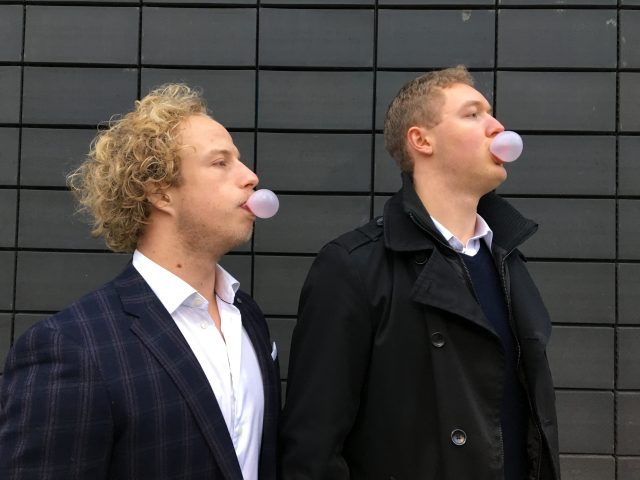




























































































































Comments